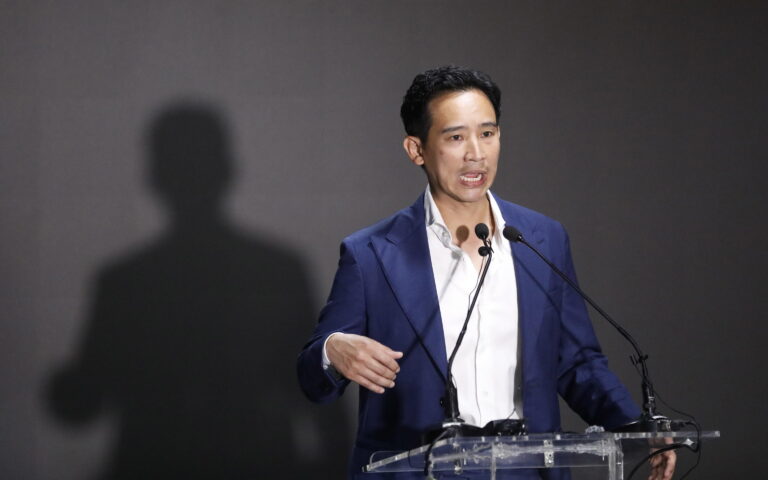Thailand’s Constitutional Court to hear the case against Pita and his party
On the eve of the joint session of Thailand’s National Assembly to choose the next prime minister, the country’s highest court accepts to hear a complaint against the young leader who won the elections and his party, with the latter threatened with dissolution for lèse-majesté. With former military strongman and outgoing Prime Minister Prayut Chan-o-cha retiring from political life, another military coup cannot be ruled out if disorder breaks out.
Bangkok (AsiaNews) – Thailand’s Constitutional Court will examine a request by the Election Commission (EC) to disqualify Pita Limjaroenrat, 42, leader of Move Forward (Phak Kao Klai), the main party in the coalition that defeated pro-military parties in the 14 May parliamentary election.
The court also accepted a complaint from a lawyer who is demanding the dissolution of Pita’s party as a threat to the monarchy.
This comes at the end of a hectic day, following three days of deliberation by the EC, on the eve of the joint session of parliament set to choose a new prime minister at 5 pm tomorrow.
The leader of Move Forward is accused of violating the election law that bans anyone from running if they hold any interests in media firms.
Pita is accused of owning some shares in iTV, a television station, while running for office. The shares in question were part of the estate of his father, who died in 2006. The station stopped broadcasting in 2007 and was eventually delisted in 2014.
In the second case, the court is set to hear a petition from a lawyer who wants Move Forward dissolved for allegedly attacking the monarchy since it proposed to amend Article 112 of the Penal Code which deals with lèse-majesté.
This article has become one of the tools with which the military and nationalists have suppressed growing dissent and demands for democracy and justice.
Move Forward has 15 days to counter the charges but should the Constitutional Court accept the plaintiff’s argument, the party will be disbanded.
The situation is complex and open to various scenarios. In itself, ineligibility as a Member of the House of Representatives would not prevent Pita from being designated prime minister. It would be altogether different if Move Forward were dissolved.
If Pita still puts forward his name for the post of prime minister, a negative vote could open a different can of worms. Parliament could delay choosing a new prime minister. The winning coalition could split with parties switching side. And, last but not least, the military could decide, again, to re-establish “law and order” if street protests break out against the decisions of the Election Commission and the Constitutional Court.
Given Thailand’s complex and shifting politics, the two main parties in the new majority – Move Forward and For Thais (Pheu Thai) party –anticipated the EC’s move, agreeing already to give Pita a second chance on 19 July if he is not voted in tomorrow.
To become prime minister, one needs 376 votes out of 750. The winning coalition has 312 votes out of 500 in the lower house (House of Representatives), which means that 64 votes must come from the Senate (250 seats), whose members were appointed by the military junta during the previous parliamentary election in 2019.
Meanwhile, yesterday outgoing Prime Minister Prayut Chan-o-cha announced his retirement from political life. His record includes cracking down on the Red Shirt movement in 2010, imposing martial law and carrying out a coup in May 2014, and heading the military junta that ruled the country until 2019. That year, he put on civilian clothes to become prime minister of a government that represented the top military brass and nationalist-monarchist groups.
15/05/2023 15:39
16/07/2021 15:28







.png)










